I'M ONE TO TALK
Our Blog Posts will help you reach your full potential in becoming a confident conversationalist. New topics each week.
Sports Conversation Starters for Your Workweek
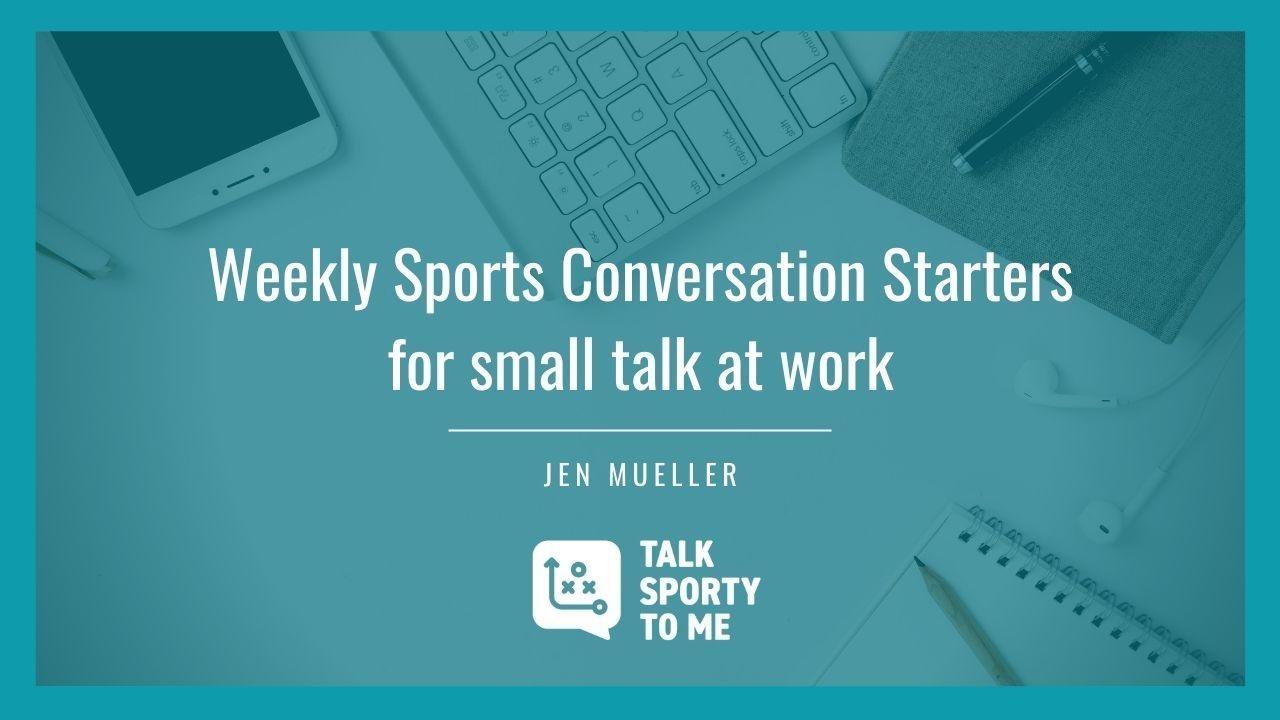
There's a reason you’ve probably been told to “keep it simple” at some point. It's a reminder not to overthink or overcomplicate the process or the idea.
The advice gets doled out when making goals you actually want to keep, when problem-solving, presenting new ideas, creating new products and even decorating your house.
Here’s another spot to keep it simple – sports small talk.
Small talk with colleagues is not the time to overthink or prove how much you know. Small should be a relationship building activity. You need to be present and engaged in those moments. Keep the conversation starters simple – that doesn’t mean boring - so you can fully engage in what your colleague is saying instead of coming up with your best retort or comeback.
These weekly sports #ConvoStarters are made for that purpose. There’s just enough information for you to engage in a short conversation that simply helps you build relationships.

Communicating with Remote Teams: What did I miss?
"What did I miss?"
It's how you might start a conversation that's already in progress and it's an important starting point for every email you send while working from home.
You might think you're at the beginning of a conversation and that your colleague or employee isn't missing anything, but without regular small talk or overhearing conversations at work they're missing pieces of information.
Every email you send is like joining a conversation midstream. Make sure you include details that provide perspective.
Sports Conversation Starters for Your Workweek
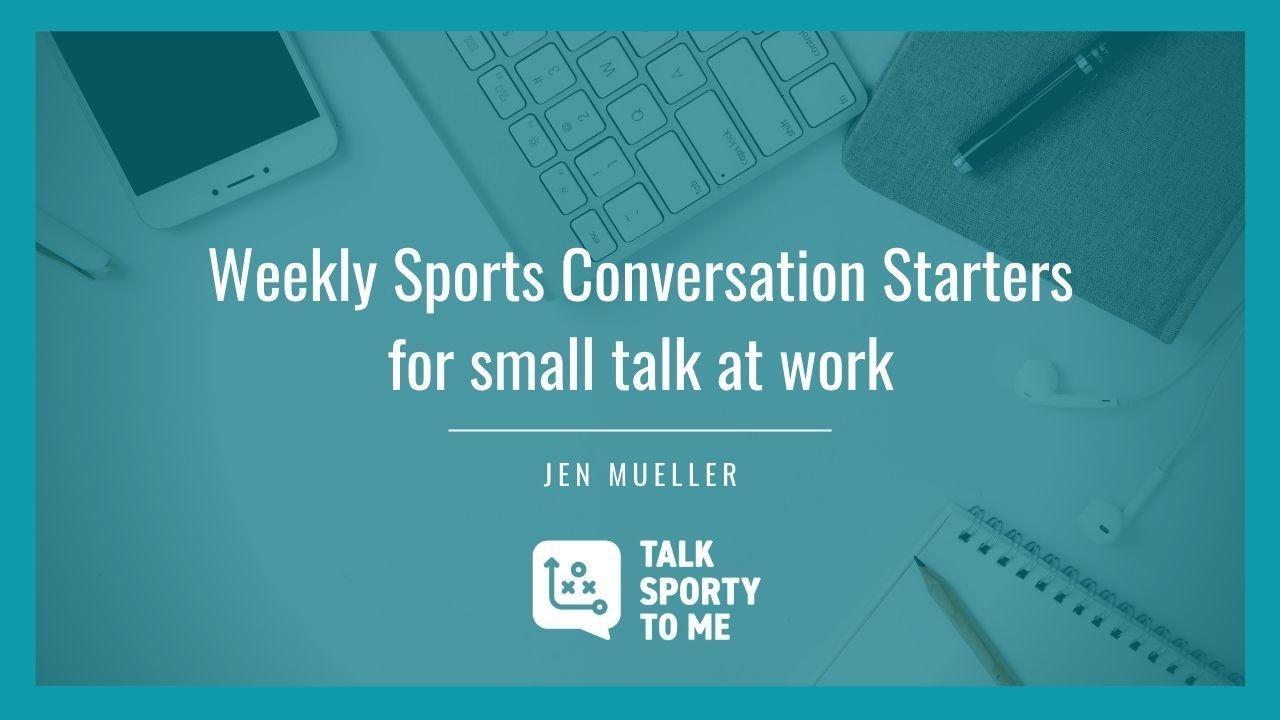
Among the many headlines I read in the last week this one stands out:
“The coronavirus has killed water-cooler chatter but it’s a key skill for business and happiness.”
Here’s the basic premise – no chitchat leads to feeling less connected to colleagues, less productivity and reduced social skills.
Small talk is, in fact, critical to business.
It’s one of the reasons I’ve committed to providing weekly sports conversation starters every week for the last 11 years.
Here’s a list of topics you can use this week.

Learn from a Leader: Thought Leadership
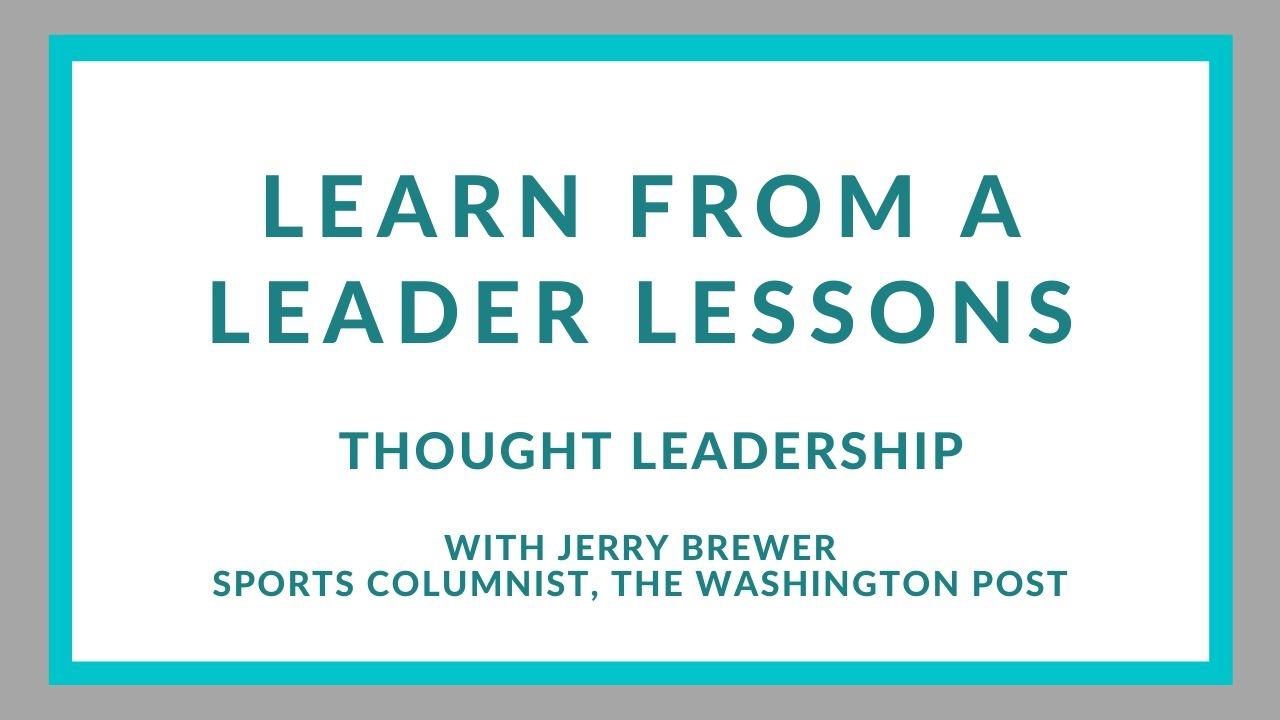
Thought leadership is more than being seen as an expert. It's a way to drive business. An ongoing study by Edelman and LinkedIn found:
"Companies with the best ability to produce timely, thought-provoking thought leadership content are much more adept than their competitors at capturing their customers’ attention and turning that attention into positive results."
Positive results for a company = sales.
Positive results for you as a leader = influence and power to persuade.
Thought leadership isn't reserved for a select few at the top of a company. Anyone can contribute by being thoughtful, timely and persuasive in their messaging.
It's a lot like being a newspaper columnist. Well written columns are designed to get you to think and persuade you to see a different point of view. Jerry Brewer, sports columnist for The Washington Post does this on a weekly basis. He joined the Learn from a Leader series in July to describe how he approaches thought leadership and what that mean...
Sports Conversation Starters for Your Workweek
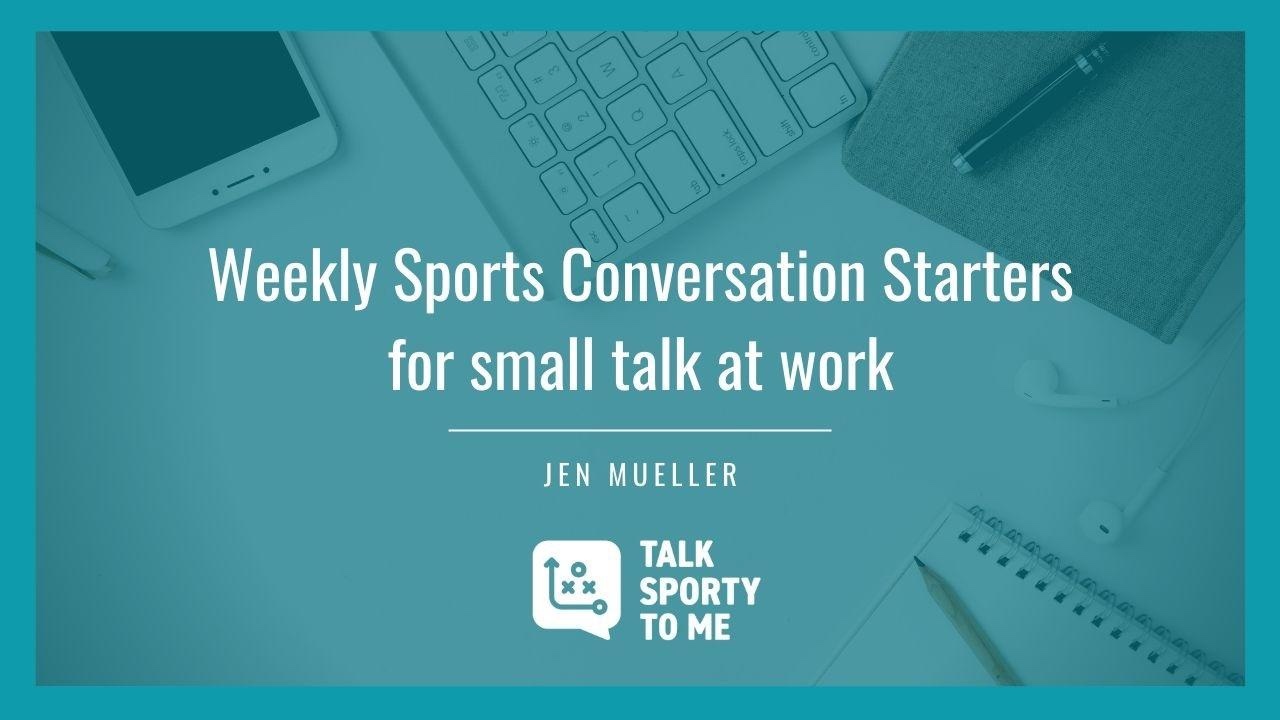
“I’ve got better things to do than watch sports.”
It’s feedback I’ve received from a few anti-sports fans in the last couple weeks.
I get it. Watching hours of sports isn’t for everyone (especially if it’s not your job.)
But here’s what those folks aren’t getting – it’s not about the time you spend watching sports, it’s the space you create for others to talk sports that makes sports talk valuable at work.
The sports outcomes aren’t as important as the outcomes you create in building relationships.
And you already know brushing up on your sports knowledge doesn’t require hours in front of the TV, you’ve got this weekly cheat sheet to help out.

Sports. Communication. Leadership.
You've probably noticed I talk about more than sports. There's a reason for that.
As I mention in the video, there's a correlation between sports, communication skills and leadership.
If you're not using sports fandom or sports experience to improve your communication skills or further develop your leadership abilities you're missing out.
Talk Sporty to Me is not about game outcomes it's about the outcomes you create when you can connect with others, build relationships and lead others.
Check out some of the blog posts and sign up for monthly or weekly emails. Send me an email: [email protected] if you're ready to provide your team effective communication training with a whole new twist.
Utilize the Relationships You've Built

A good friend called me with a question, “A friend and former colleague is recommending for a job at his company. Should I apply for it?”
Before I had a chance to say, “Of course you should. Why wouldn’t you?” she launched into her pro/con list. The answer still seemed obvious to me, but she remained on the fence.
“Why wouldn’t you trust a friend’s recommendation?” I finally asked. “What’s the point of building relationships if you’re not going to trust them or allow them to be beneficial?”
My friend joked about her naturally distrusting personality, but the point remains.
If you are going to take the time to build relationships (and you should) you should also be willing to use them.
That means...
Asking for help when you need it.
Seeking honest feedback from mentors.
Brainstorming with colleagues.
Following the advice of a trusted friend.
Staying on the radar of an advocate.
And when it comes to building those relationships - it all starts with your conversation skills...
Sports Conversation Starters for Your Workweek
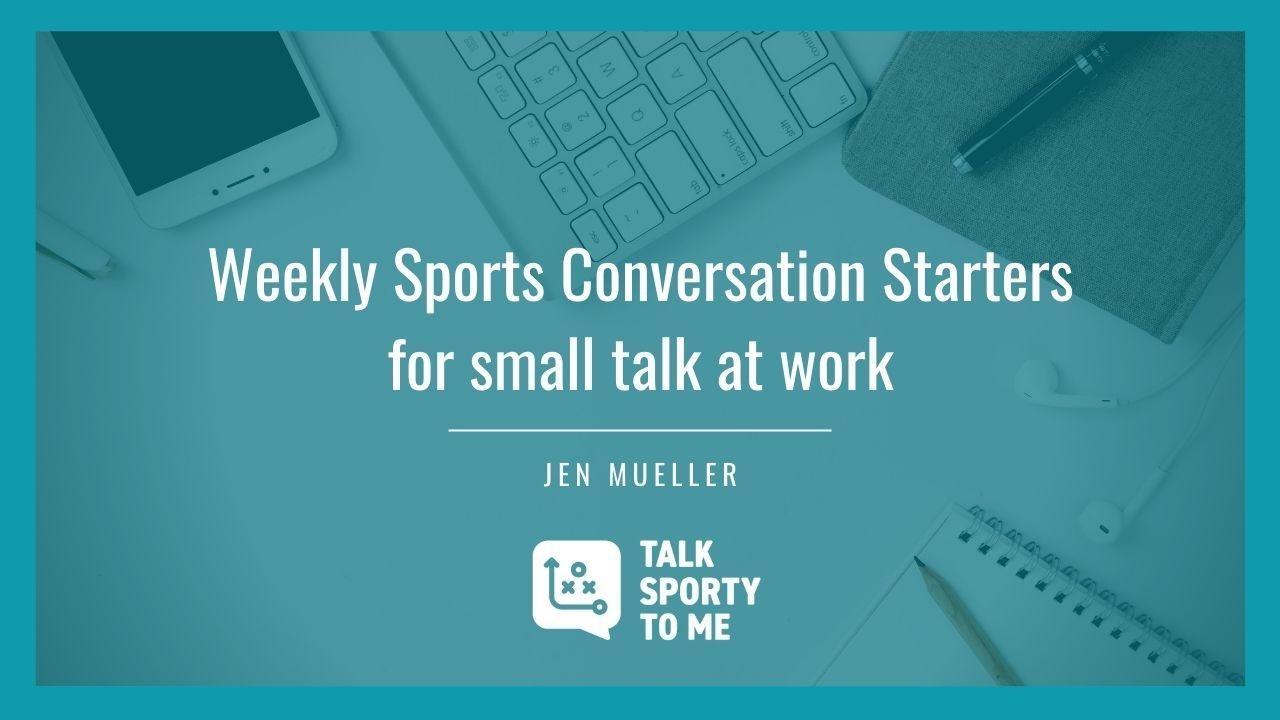
Fans are hungry for sports.
The proof is in the ratings. The Opening Day matchup between the New York Yankees and defending World Series Champion Washington Nationals was views by an average audience of 4 million people. It is the most watched regular season MLB game since 2011.
And sports fans don’t just want to watch games, they want to talk about them. “Did you see the game last night?” makes a great conversation starter so do these sports topics making headlines this week.

3 Reasons to Become a Sports Fan Right Now

Sports is back.
Are you on the bandwagon? Enthusiastic about cheering from home? Or, unsure of what the fuss is all about?
Whether you’re a long-time fan looking forward to nightly games or a novice fan who’s just testing the waters of your sports fandom, there’s a benefit to being a sports fan. Actually, there are a number of benefits including connections and access that allow you to build relationships.
Sports fans talk to other sports fans regardless of job title, education or length of fandom. More than half of all Americans say they’re sports fans. If you put those two statements together you can position yourself to make sports small talk with more than 164 million people in the United States alone. Small talk is how relationships get started and it’s one way to stay on the radar and build relationships over time.
So if you’re on the fence – or living with someone who’s not as excited about watching sports as you are - here are few things to think about.
3 Reasons to B...
Sports Conversation Starters for Your Workweek
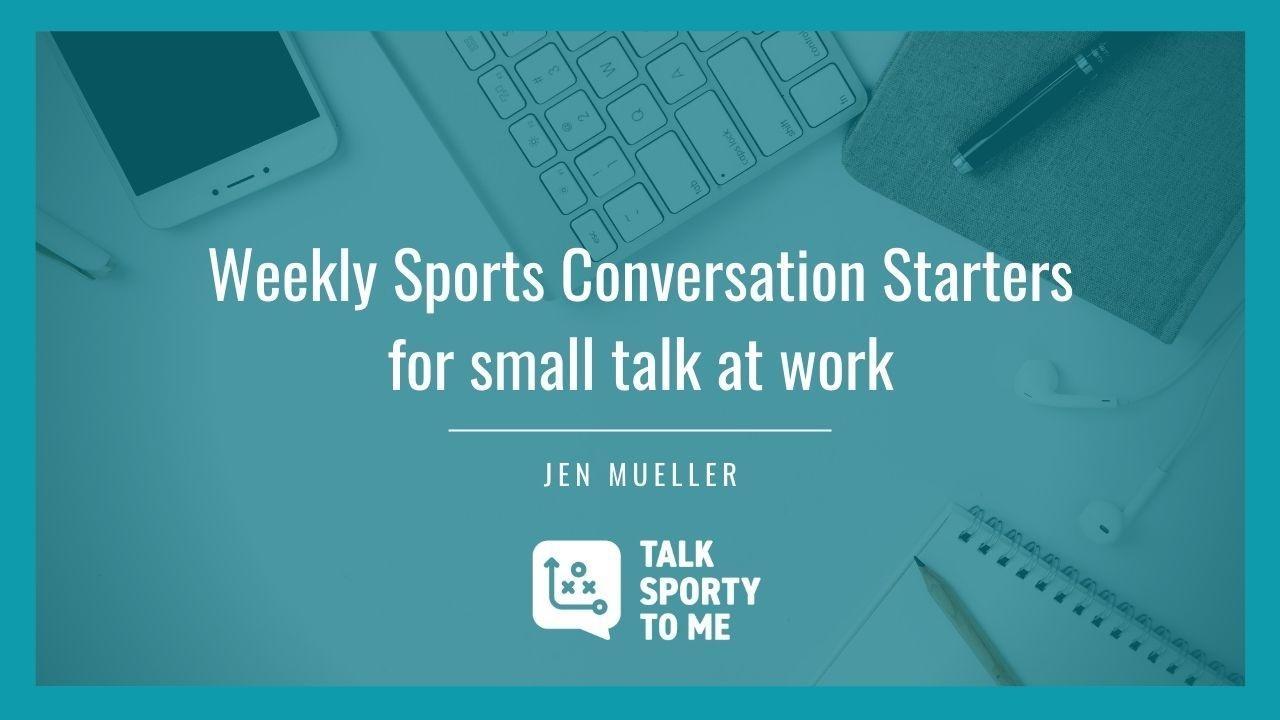
Better communication skills are at a premium right now. Communicating remotely requires more clarity than talking to people in person. You’re not going to get the big stuff right (i.e. hash out differences, get on the same page with a project, communicate the correct timeline or actions) if you don’t get the smaller stuff right – like building relationships using small talk.
Don’t skip the small talk this week. Don’t blow it off as a waste of time. It’s practice for bigger conversation and it’s a way to build relationships so you know how to communicate with clarity to each person you work with.



